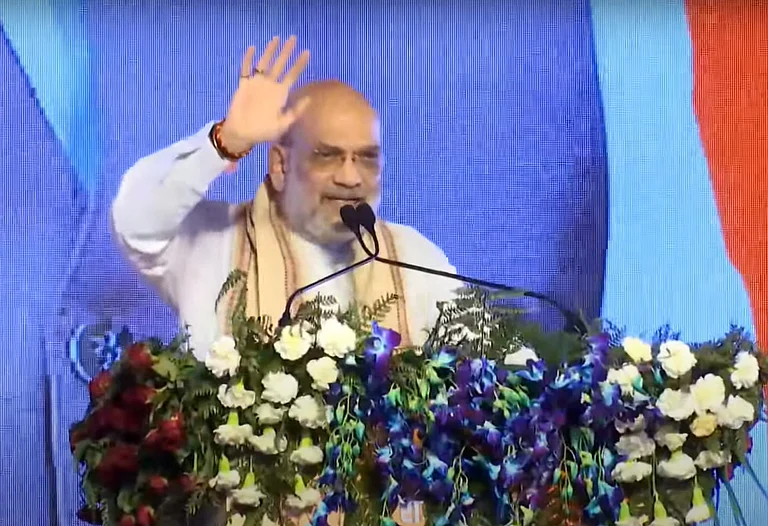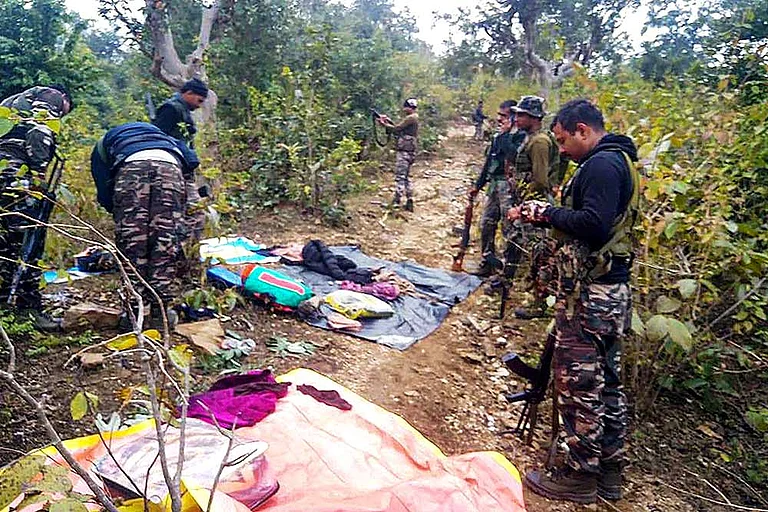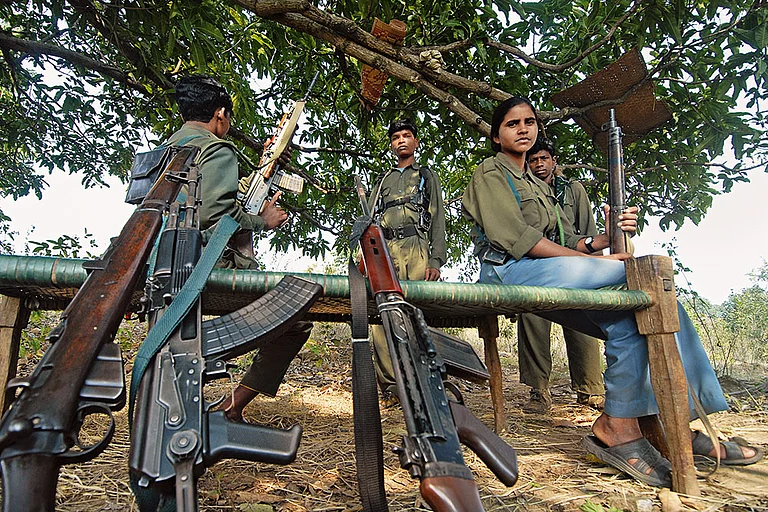Nine Naxals, including six women, were killed in an encounter with security forces in Chhattisgarh's Bastar region on September 3. According to a top police official, this is the latest in a series of offensives against Naxals, which has gathered pace after a change of government last year. The gunfight broke out around 10:30 am in forests along the inter-state border in Chhattisgarh, between Dantewada and Bijapur districts.
In the statement, the police said that those killed were important cadres carrying a cumulative bounty of Rs 59 lakh. One of them was identified as Randhir, a commander from the Dandakaranya Special Zonal Committee, the strongest Maoist formation, who alone carried a reward of Rs 25 lakh.
As of September 2, 184 Maoist deaths have been reported in India in 2024. This is the highest number of Naxalites killed in a year since 2009. The killings have been concentrated in Chhattisgarh since the Assembly elections in December 2023. After the Bharatiya Janata Party (BJP) returned to power under the first tribal Chief Minister Vishnu Deo Sai, there was a rise in anti-Naxal operations in the state in line with the Centre’s objective.
Since December last year, there have been Naxal-police encounters in Chhattisgarh almost on a daily basis. At a press conference in Raipur in August, Union Home Minister Amit Shah said, "If we want to address the Naxal issue in Chhattisgarh then the ecosystem of adjoining states should also be strong in tackling the menace. A strong and ruthless strategy is required for launching the last assault against Naxals.” Stating that the lives of 17,000 security forces and civilians had been lost in attacks, Shah urged Naxals to lay down arms and said that the Chhattisgarh government would announce a "new look" surrender policy within 1-2 months.
In April this year, 29 Naxals were killed and three security personnel sustained injuries in one of the biggest encounters this year. A joint team of the Kanker District Reserve Guard and Border Security Force had begun a search operation on the morning of April 16 in the forests of Kanker district. Around 2 pm, there was an exchange of fire between Naxals and security forces in the Binagunda-Koragutta jungles in the district. The police recovered huge quantities of arms and ammunition.
The encounter spot is a tri-junction of Chhattisgarh’s Kanker and Narayanpur districts and the adjoining Gadchiroli district in Maharashtra – which is known to be a safe haven for Maoists in the Bastar region. The area is infamous for targeted attacks on security forces, in many of which civilians have also been killed.
In May, 12 Maoists were allegedly killed and two security personnel injured in an encounter in the jungles of Pedia village in Bijapur district. The gunfight lasted over eight hours. According to security forces, six of those killed were militia cadres working closely with members of the banned Communist Party of India (Maoist), while the other six were militia members. They carried a total bounty of Rs 31 lakh on them. However, days later, some families alleged that those killed were, in fact, tendu leaf pickers.
In another encounter in June, 9 Naxalites and a jawan from the Special Task Force (STF) were killed in the Abujhmad area of Narayanpur district. Two more STF personnel sustained injuries in the incident. Following the encounter, Chhattisgarh Chief Minister Vishnu Deo Sai said his government was fully committed to eliminating Naxalites and will not sit quiet till it achieves the goal.
Apart from these, many ultras have also surrendered to security forces. In May, 33 Maoists surrendered due to intensity of operations in Bijapur and neighbouring Sukma district, which are home to 20 camps set up by the Border Security Force (BSF). In August, 25 Maoists who were active in Gangloor and Bhairamgarh area committees of the CPI (Maoist) – five of them carrying a cumulative bounty of Rs 28 lakh on their heads – surrendered in Bijapur district in Chhattisgarh.
At a press conference following a review meeting on Left Wing Extremism (LFW) in August, Union Home Minister Amit Shah announced that the fight against Naxalism is not just a fight of ideology but also of areas which are lagging behind due to lack of development. He said that the government was committed to completely eradicating Naxalism before March 2026.


























